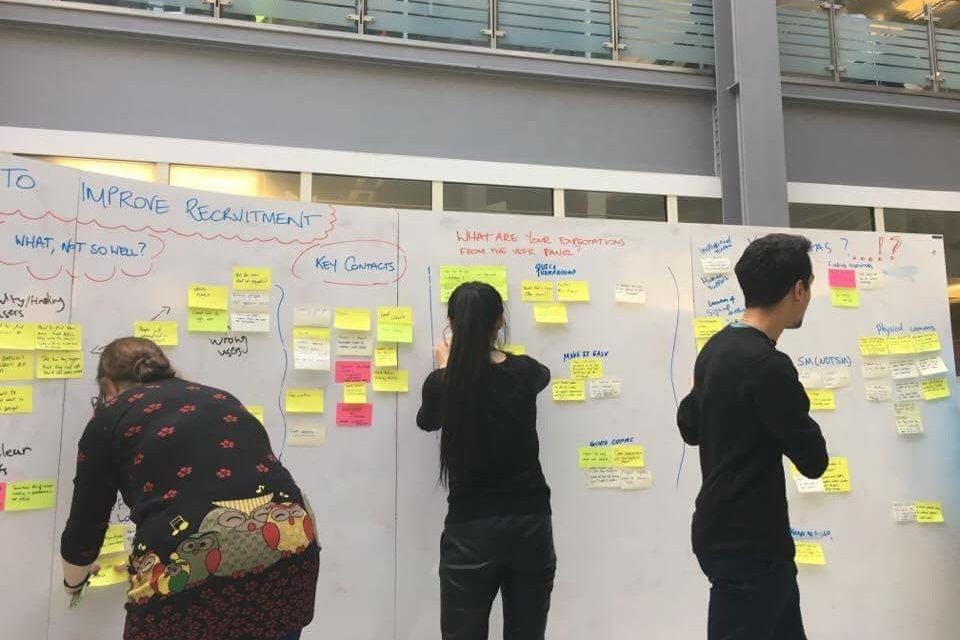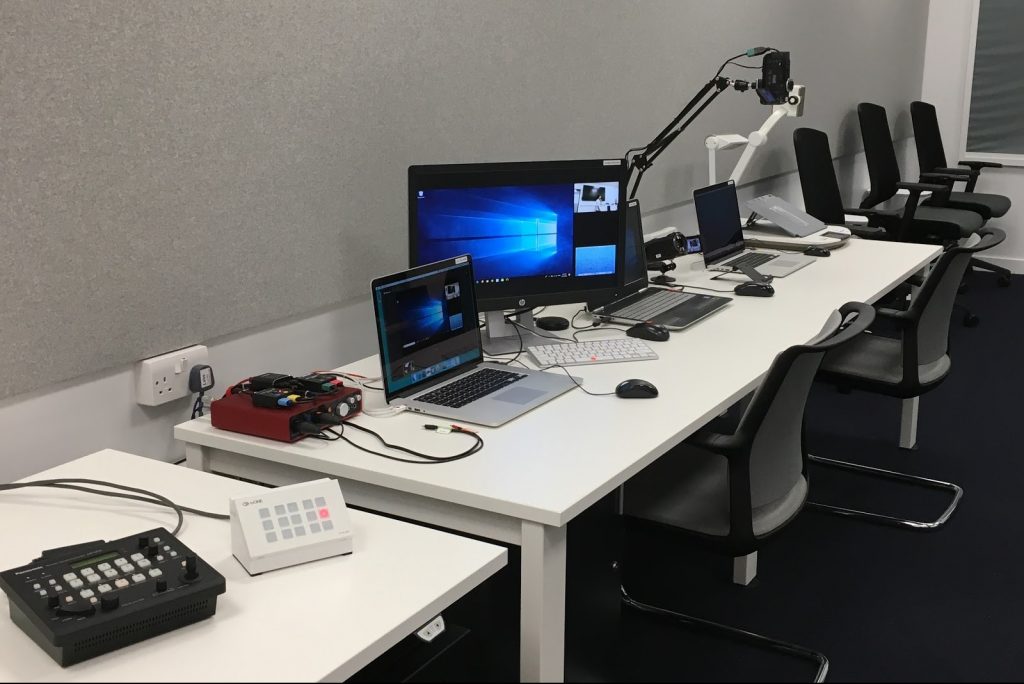 Hello, I am David Nearney and I’m part of the Research Services team, winners of the Pride in the North East - Quality & Professionalism Award, and based in Newcastle. We support our User Researcher community across six HMRC locations. The team make sure user recruitment, user contracts, research facilities, equipment and software are in place so our user researchers can concentrate on doing the research.
Hello, I am David Nearney and I’m part of the Research Services team, winners of the Pride in the North East - Quality & Professionalism Award, and based in Newcastle. We support our User Researcher community across six HMRC locations. The team make sure user recruitment, user contracts, research facilities, equipment and software are in place so our user researchers can concentrate on doing the research.
In this blog, I’ll give you an update on our work to recruit users for research.
Getting users involved
In the past whenever we needed to find users to help us test our services we had to use external recruitment agencies to help us. This not only cost money, but also meant we were a step removed from making sure we found the most suitable users each time. So this team was born out of the need to centralise the recruitment of users and provide value for money within the research community.
We’ve worked with the Government Digital Service (GDS) to develop a bespoke user research recruitment tool that can be used across government departments. Having the tool in place enables us to recruit real users of our services ourselves, rather than rely on agencies to do it for us at a cost.
We recruit the users to test, improve and offer valuable insights into our digital services. We need users of varying degrees of experience, ranging from experts to those without any experience at all.

To recruit participants, we have embedded a recruitment banner link on our digital services pages on GOV.UK, so users can click the link and easily sign up to join our user research panel and volunteer take part in research. We launched the user research recruitment tool in July 2017 and as of February 2019, we have over 48,000 unique users signed up to our panel.
Facts and figures
Thanks to the amount of unique users we have signed up to our user research panel, we are now able to action more recruitment requests in-house rather than always go via an agency. Recruitment requests are the requests for users made by the user researcher.
In January 2019, we passed a major milestone for the team: this was the first month we fulfilled more than 50% of all recruitment requests by finding people on our database. Overall we fulfilled 20 out of 29 requests, with only the remaining 9 going to our recruitment partners.
For the 20 requests, we arranged 70 individual sessions between users and researchers. These were a mix of remote and face-to-face sessions.
Over the course of 2018, we more than doubled our output. This has continued into 2019 where we have already fulfilled more than 50% of requests for January, February and March. Most recently in April, we continued this upward trend and fulfilled 66% of requests.

Using the panel
We recently had a request to recruit 14 users for a two-month diary study. A diary study is a research method used to gather data on real time user behaviour and needs over time. There were some immediate challenges from a recruitment perspective: how do you keep a user engaged for a two-month study, and what to do you do if a user drops out?
Thankfully, we had a lot of interest when looking for participants and to counteract the potential for participants dropping out, we recruited more participants than required. If any participants drop out, we still have enough users to gain valuable insights from the study. It is due to finish in the next few weeks, with all 14 users still currently engaged.
Beyond the panel
Day-to-day, our team primarily deals with recruitment requests. However, we go beyond recruitment. We also manage our own usability lab facilities, which we have in our all of our locations – Newcastle, Shipley, Manchester, Telford, London and Worthing, and we’ve started work on our building our latest lab in Cardiff.
Our facilities are all designed and built to allow researchers to be able to visit a lab in any location and be familiar with the set up and equipment. Alongside this, we manage specialised research software, which allows our researchers to carry out a range of research methods.

What does the future hold?
We are very much at the forefront of the Research Services movement and we are most definitely setting the pace in government with the speed of growth of our team and service we provide.
We have also been working closely with our colleagues at the Home Office, sharing our experiences of user recruitment, the challenges we have faced and the successes we have had.
We are always looking to grow our user panel with participants for research, and to make our pool of users as diverse as possible. This includes engaging with charities and local and professional organisations with the aim of bringing niche user groups on board, who can be more challenging to recruit.
If you would like to sign up to our research panel, you can do so by following this link to gov.uk user research sign up. If you are part of a research ops team, we’d love to hear from you too: feel free to contact me by leaving a comment below.
Check out our current vacancies. They're updated regularly so worth keeping an eye on.
Follow us on Twitter @HMRCdigital
To make sure you don't miss any of our blog posts, sign up for email alerts
2 comments
Comment by David Nearney posted on
Hi Tress, glad you enjoyed the blog post. It would be good to talk so thanks for the contact details, I'll be in touch shortly. David
Comment by Tress Carmichael posted on
Hi David - I enjoyed reading your blog and am really interested in the progress you have made. Recruitment is the biggest time consuming issue all researchers face. It would be great to chat to you further about this and have left my email address below.